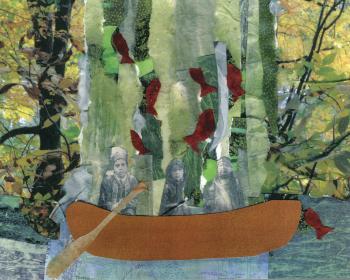
On June 21, 2012 at 3:30pm EST, Cultural Survival's Deputy Executive Director, Mark Camp, will be on CO-OP Radio Vancouver, 102.7 to speak about "Our Voices on the Air: Reaching New Audiences through Indigenous Radio" conference. "Our Voices on the Air" an initiative with the Recovering Voices Initiative at the Smithsonian Institution to facilitate endangered language revitalization by producing a conference on radio programming in Indigenous languages.
Listen here:
Participants from Cambodia, Russia, Thailand, the United States, and Uruguay gathered at 2 UN Plaza last week during the final week of the United Nations Forum on Indigenous Issues in New York City for Cultural Survival’s workshop "Indigenous Language Survival and Revitalization: Film, Radio, Web, and Growing Speakers from the Grassroots.” Hosted by Cultural Survival’s Endangered Languages Program with staff from Cultural Survival's Community Radio Program, and the Smithsonian Institution’s Film and Video Center (FVC) of the National Museum of the
Cultural Survival’s Endangered Languages Program and Makepeace Productions are teaming up once again, with support from the National Endowment for the Arts’ ARTWORKS program and the Center for Independent documentary, to develop enhancements for the OurMotherTongues.org companion website to the award-winning documentary Âs Nutayuneân—We Still Live Here. The film